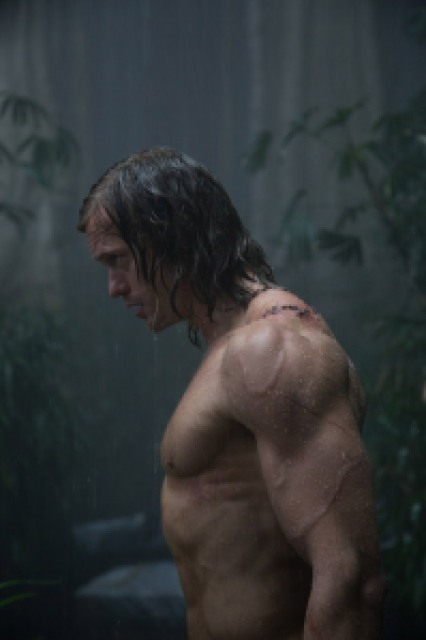Film Review: The Legend Of Tarzan- Socially Provocative, Environmentally Protective
Admittedly, I went into The Legend of Tarzan with low expectations. The trailers had underwhelmed by showing the same scenes. Yet, I was very surprised by both its goodness and its thoughtfulness. It is a film that is more socially analytical than perceived. It speaks on themes of slavery, colonialism, environmentalism, and wildlife preservation. Moreover, its analysis of these themes makes you want to fight the injustices done unto people and the earth.
Tarzan takes place in 1884. We find John Clayton III/ Tarzan (Alexander Skarsgaard) living a comfy, domesticated life with Jane (Margot Robbie). He is far from the jungle and happy about it, Then he receives an “invitation” from King Leopold to go to the Congo and claim that the King’s endeavor to find minerals and diamonds in the country, despite bankrupting France, is a great and successful endeavor. Although Tarzan does not agree to the propaganda, U.S. representative and doctor George Washington Williams (Samuel L. Jackson), hints that king’s image of success hides tragic, deadlier motives, of which only Tarzan can uncover. From there, they encounter the eery, but dastardly Captain Leon Roma (Christopher Waltz), whom assures that Tarzan’s trip back home becomes the vacation from hell. Plot aside, The Legend of Tarzan is wealthier in wisdom than the trailers presented.
Beyond the beautiful cast is a film that discusses the harsher history and penchant for cruelty of humanity. Yes, Alexander Skarsgard is gorgeous, but he is also subtle and fills the role of the “King of The Jungle” with a quiet, striking depth. Samuel Jackson is also subtle in his role, and gives one of the most heartfelt performances I have ever seen in his career. Margot Robbie is also excellent as a strong, intellectual Jane, whom is far from the “damsel in distress” this character is usually portrayed to be. Still, the film is elevated because of its portrayal and capturing of wildlife and questioning as to why humanity wants to destroy itself just because? To reveal the films discussion of said matters, I will divide its themes into three parts: environmentalism and wildlife preservation, slavery and colonialism, and human self-destructiveness.
Environmentalism And Wildlife Preservation
Several scenes portray poachers killing these lovely creatures because they can, which makes you wonder if that is both a valid and healthy reason. I can’t describe how uncomfortable and sad I was to see beautiful, plush landscapes get ravaged for fun or the kindest animal like, a baby gorilla, get killed because “some guy was in a mood”. Now more than ever, most of us know the danger of weaponry in the hands of moody men, but Tarzan reminds you that moody men with guns is both a systemic and historical issue.
Why do we enslave each other? Why do we kill each other? Why do we even want to? These questions circled my mind as I watched the truthful destruction of life. While Independence Day: Resurgence of The Avengers’s series have a penchant for out of this world, massive destruction, The Legend of Tarzan showed the real ones occurring now, which was scarier. I almost wanted to book a flight to the Congo and start a peaceful sit-in somewhere to protest. The film made me want to confront the darkness of humanity, take action, and say “Why?’, without being politically correct. For example, ‘Why do you want to kill an animal like, an elephant, so badly?”. What about that makes you feel empowered?
One scene, in particular, stands out as a good reason to explain why humans kill each other, animals, and the earth, itself. When Tarzan is confronted by a father for his reasoning behind killing his young son, he says “I had no honor”. The boy had killed the gorilla that had raised Tarzan, and in a blind rage, he killed the boy. Yet, seeing that there is no honor in rage and numbness was a veiled “reality check” for those that believe the death of a living creature is enlivening to their spirit/ value.
The Legend of Tarzan comes out in theaters July 1, 2016. Enjoy! Click The Official Site Here.



